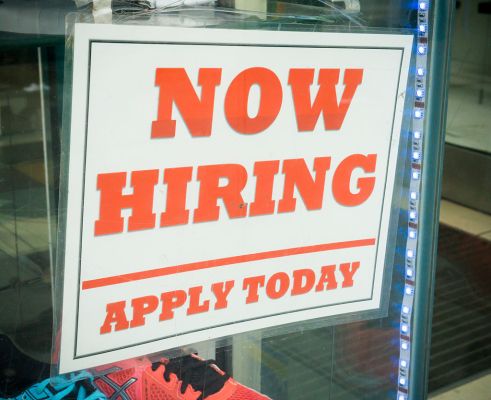As companies look to build diverse workforces, the biggest problem seems to be sourcing candidates from historically underrepresented groups, often because companies don’t know where to look. TaTio, an Israeli startup from a couple of HR veterans, has built a platform to help connect companies to candidates who have the skills, but may lack a traditional resume.
Today the company announced a $5.3 million seed investment.
TaTio CEO Maya Huber says she and her co-founder, COO Mor Panfil, have over a decade of experience running HR companies. They personally experienced the frustration of trying to place people from a variety of underrepresented backgrounds, and the biggest problem was getting candidates through the resume review stage.
“Every solution out there was still relying on resumes as a first step for people to apply. And we thought that there must be a different way because through the years as we worked with different types of underrepresented populations, we found that the resumes often did not reflect a person’s actual skills,” Huber explained.
The company developed a solution to help companies fill open positions with workers who are qualified, but lack traditional credentials. “These hidden workers are disproportionately from underrepresented groups. TaTiO sources and vets job seekers with their AI work experience simulations and provides employers with pre-qualified candidates to interview,” she said.
The company has built a two-sided marketplace. On one side they source candidates and then build tests that simulate the job the person is applying for. The idea is if the person performs well enough, they should be able to do the job. But the important thing is that it gets them over the resume hurdle.
“We track candidates and we engage them through tests that simulate the core tasks of the job…So if you’re applying for a job as a sales representative, you will have 20 minutes to close three deals. We give you a pipeline of leads you need to qualify and create interactions with prospective clients,” she said.
Using an underlying machine learning model, they judge the candidate’s performance and give them a score, and then match the candidates to the job openings with the goal of placing them in a job.
The company says that these models should improve over time as they collect more data on each simulation type. For now, the goal is to find a person who will be a good match for an open job with a particular employer, but in the future the company hopes to surface skills beyond what was explicitly being tested for.
They find candidates from a variety of sources including partnerships with NGOs and continuing education and training programs that work with underprivileged populations.
The challenge will be measuring the results. It’s difficult to know how many of the candidates are from underrepresented groups unless they self-report. The hope is that by working with the companies using their service, they will be able to collect more data on the connection between their diversity hiring success, and the use of the TaTio platform. Huber says the companies using the platform are already reporting improvements, with some increasing their diversity hiring by 25% since they have been using TaTio.
The company currently has 16 employees, with over 75% women, although they are still trying to get more women in the engineering group. They also have age diversity, with some employees over 50 and some just starting their careers. So they are trying to practice what they preach in terms of diversity.
Today’s seed round was led by Mensch Capital Partners and Cresson Management, with help from Cerca Discovery, Tau Ventures Ltd., Techstars, GoodCompany and a number of other industry angels.
